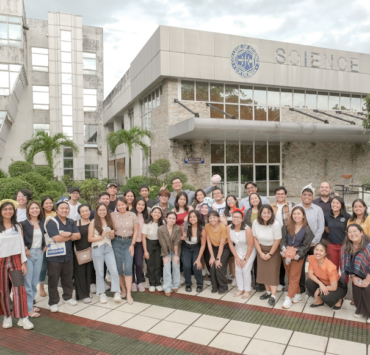‘Emulsyon’: A double bill on martial law

Perhaps it is just a coincidence, as a resurgent Philippine theater reasserts itself following the trauma of the pandemic, but memories of the martial law regime imposed on Sept. 21, 1972, continue to haunt the performing arts.
In this month alone, in a span of about four days, we have seen as many plays dealing with the effects of that era on families, victims, and survivors: “Indigo Child” by Rody Vera and “Loyalist Redux” by Kanakan Balintagos; “Silver Lining Redux” by Jack Teotico and Joshua Lim So; and “Nanay Bangis” (Dulaang UP) by Rody Vera, an adaptation of Brecht’s “Mother Courage and Her Children” transplanted to “the island of Mindanao” during the 1970s, when war erupted between Muslim separatist forces and the military.
“Loyalist Redux” and “Indigo Child” form the twin bill called “Emulsyon” (Apothecary Productions), with direction by Heart Ramos. The two one-act plays are showing during weekends at the Black Box Theater of Erehwon Center for the Arts in Old Balara, Quezon City. Meryll Soriano and Elijah Canlas are the stars of the twin bill and appear in some of the performances, but for the recent press preview it was the alternates who played the leads.

Each play has five characters: Felisa the mother (Noelle Polack) in conflict with her son (Nathan Molina), and an ensemble of three (Dia Papio, Jay Entienza, and Ivan Hinggam). The trio are mute witnesses to the exchanges between mother and son, react to what they hear, generally make themselves useful, and act like stagehands, moving around the simple set and attending to the props, including a period radio cassette player and some boxes.
The twin bill is smaller in scale than, say, “Nanay Bangis”; it is intimate theater. But in its own way it can be just as effective. The young actors who appear in these plays and other works with a similar theme can pass for the grandchildren of the major players in the events leading up to People Power 1986.
Confrontation
“Loyalist Redux” begins with Felisa the mother (Polack) dressed to the nines, like Eva Peron. She deliberately overacts, like a babaeng bakla. Suddenly she takes up the newspaper lying around, looks at the headline “Imelda Returns” and screams. “She’s back!” She is, in fact, overjoyed while son Jerome is angry.
I get it. Felisa used to be a Blue Lady, a member of Imelda’s charmed circle—that is why she is so happy at the return from exile of the former first lady. Jerome, on the other hand, was an activist during the bad old days.

Thus, the stage is set (pun not intended) for a confrontation, for fireworks between mother and son until, finally, a reconciliation is reached between the two opposing political beliefs.
The conflict is even more intense in “The Indigo Child,” which is based on a real-life experience. The mother was tortured and raped while detained during martial law, gave birth to a son, and is now undergoing electrical convulsive therapy. The son has to cope with this traumatic experience of his mother. In addition, he is obsessed with knowing who his father is. When he demands this from his mother, she only replies, “Ang kidlat!” The metaphorical declaration is followed by a clap of thunder.
It will need more patience and understanding on the part of both mother and son to heal the wounds and come to terms with the situation.
Catch “Emulsyon” twinbill Fridays and Saturdays (2 p.m. and 6 p.m.) until Nov. 23 at Erehwon Center. Call 0947-2985003.

















